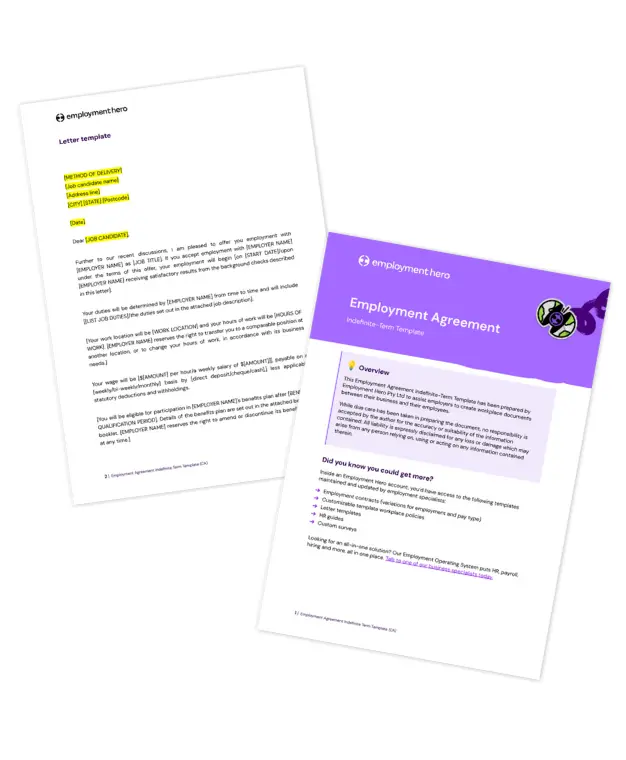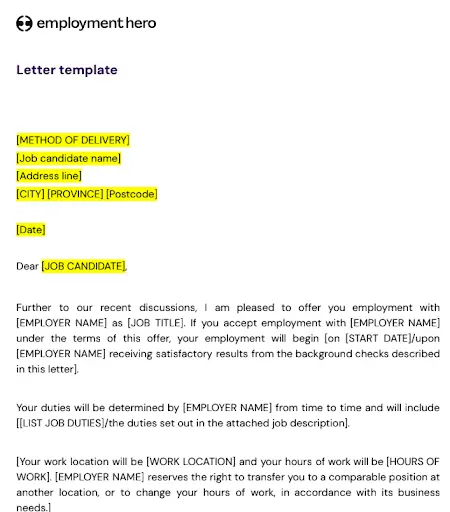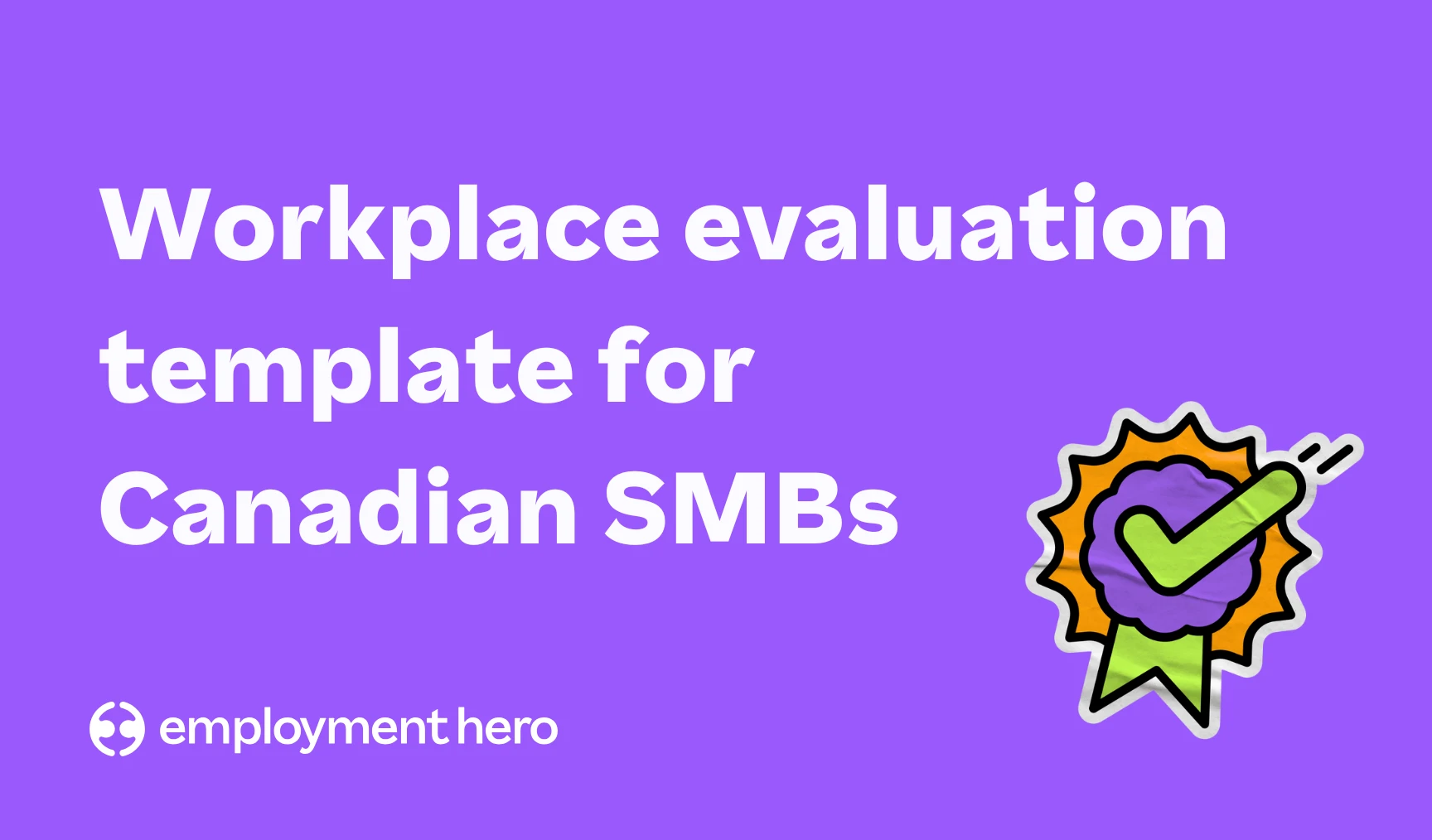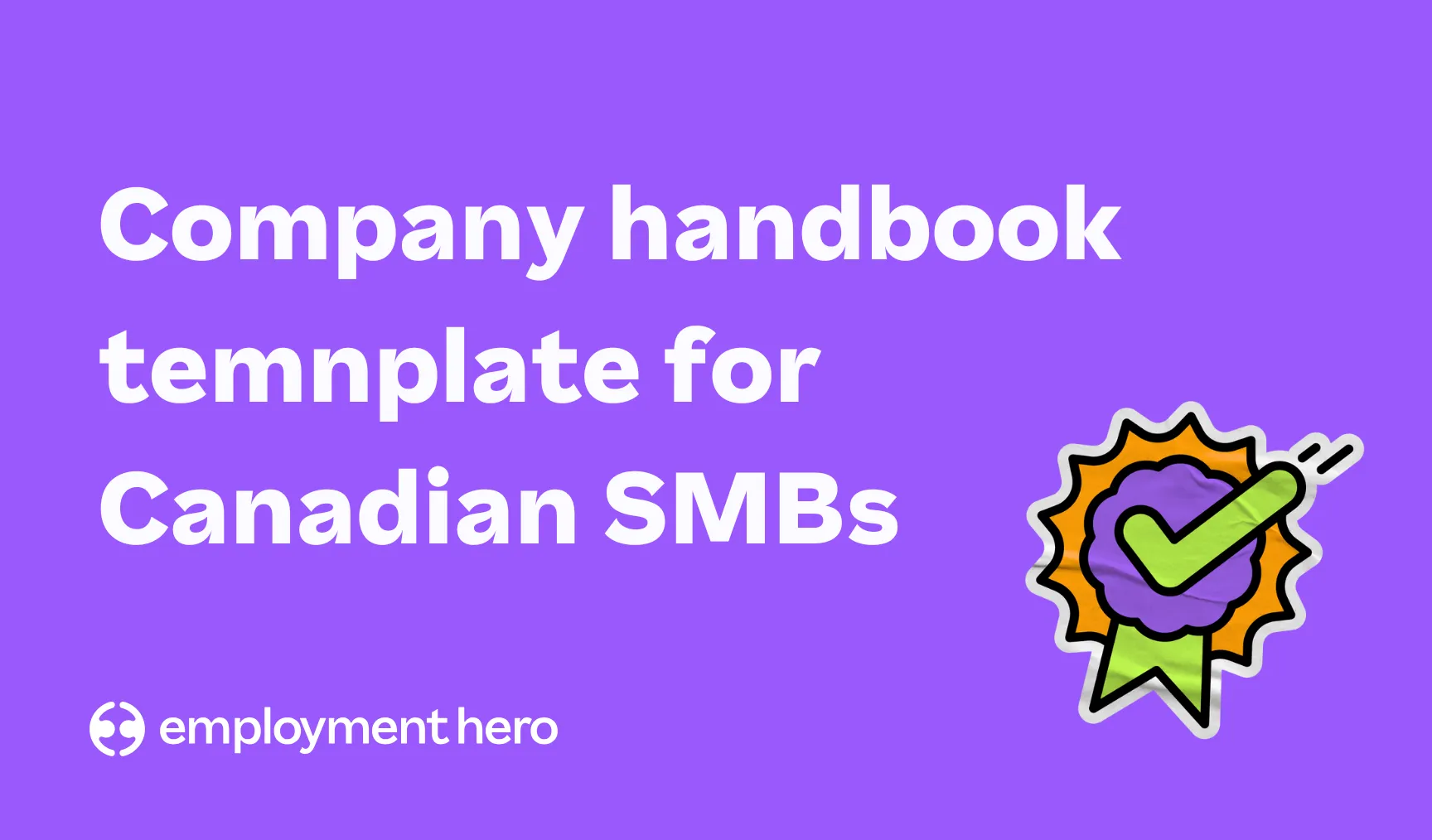Indefinite term employment contract: a complete guide for employers
Published
Indefinite term employment contract: a complete guide for employers
Published
An indefinite term employment contract is the foundation of a stable workforce in Canada. Also known as “permanent” employment, this type of agreement has no specified end date, providing both employers and employees with a sense of security and a long-term professional relationship.
Understanding how to properly draft and manage these contracts is crucial for Canadian employers. It helps you ensure legal compliance, attract and retain top talent, and build a stable business.
This guide will walk you through what an indefinite contract is, its legal requirements in Canada, and the pros and cons to consider when building your team.

What is an indefinite term employment contract?
An indefinite term employment contract is an open-ended agreement between an employer and an employee. Unlike a fixed-term contract, it has no set end date. The employment relationship continues until it is terminated by either the employer or the employee, according to the terms of the contract and applicable law.
In Canada, this is the most common type of employment relationship. The terms “indefinite” and “permanent” are often used interchangeably. It’s important to note that this is different from “at-will” employment, a concept common in the U.S. that does not apply in Canada. Canadian employers cannot terminate an employee “at-will”; they must provide reasonable notice or pay in lieu of notice unless there is just cause for termination.
Indefinite vs. fixed-term employment contracts
For Canadian employers, understanding the difference between an indefinite term and a fixed-term employment contract is more than a matter of semantics; it’s a critical factor in managing legal risk and business flexibility. This table provides a clear, side-by-side comparison of the key characteristics, benefits and risks of each contract type to help you make the right choice for your business needs.
|
Indefinite term |
Fixed term |
|
|---|---|---|
|
Duration and end date |
Open-ended; no set end date. |
Defined start and end dates. |
|
Termination process |
Requires notice or pay in lieu of notice (unless just cause). |
Ends automatically on the specified date. Early termination requires a specific clause. |
|
Notice/severance |
Requires notice based on the contract, ESA, and common law. |
Generally, no notice is required at the end date. Early termination can lead to significant severance. |
|
Use cases |
Core, ongoing operational roles. |
Temporary needs like leaves of absence, projects, or seasonal work. |
|
Risks and benefits |
Promotes stability, loyalty, and talent attraction. Higher severance risk if terminated improperly. |
Provides flexibility and budget predictability. High risk of wrongful dismissal if terminated early without a proper clause. |
Key legal requirements in Canada
It’s a key legal risk that if you repeatedly renew a fixed-term contract, a court may reclassify the employment as an indefinite term relationship. This could expose you to higher severance obligations.
In Canada, all indefinite term contracts must comply with the minimum standards set by the provincial or territorial Employment Standards Act (ESA) that applies to your business.
- Minimum notice and termination: The ESA sets minimum requirements for notice or pay in lieu of notice when terminating an employee without just cause.
- Common law notice: The common law (judge-made law) in Canada often requires significantly more notice than the ESA minimums. A well-drafted contract can limit an employee’s entitlements to just the ESA minimums, but the language must be precise and fully compliant with the law.
- Benefits and protections: Employees on indefinite contracts are typically entitled to benefits like vacation pay, sick leave, and other protections under the ESA.
- Provincial variations: While the general principles are similar across Canada, specific rules regarding severance, layoff and termination notice can vary by province.
What to include in an indefinite term employment contract
A robust contract is your most important tool for managing risk. Here are some critical clauses to include:
- Termination clause: This is the most important part of the contract. It should clearly state what the employee will receive if terminated without cause, ensuring the entitlements meet or exceed the ESA minimums.
- Compensation and benefits: Clearly outline the wage, salary, bonus structure and eligibility for benefits plans.
- Job duties and flexibility: Define the employee’s role and state that the employer can assign new duties as business needs evolve.
- Confidentiality and intellectual property: Protect your business by including clauses on confidentiality and the ownership of work created by the employee.
- Dispute resolution: Consider including a clause that outlines the process for resolving legal disputes, such as mandatory mediation.
When to seek legal review: Always have your contract reviewed by a legal professional to ensure it is enforceable and protects your business’s interests. A small error can invalidate a key clause.
Indefinite contract template for employers
Here’s a preview of the indefinite contract template you can download and customize based on your requirements:

Advantages of indefinite term contracts for employers
Using indefinite contracts provides a host of benefits that can help your business thrive:
- Staffing stability: Reduces turnover and the costs of constant recruitment and training.
- Employee loyalty and engagement: Employees are more likely to be invested in the company’s long-term success.
- Attracting top talent: Top-tier candidates often prefer the stability and career growth opportunities that come with an indefinite position.
- Simplified administration: No need to renegotiate or renew contracts periodically, which simplifies HR and administrative tasks.
Disadvantages and potential risks
While Indefinite term contracts might offer more stability, there are still risks that employers need to be prepared to manage:
- Higher termination obligations: The primary risk is the potential for significant financial liability in a termination without cause. Without a strong termination clause, you could owe many months of pay under common law.
- Wrongful dismissal claims: Employees can sue for wrongful dismissal if they believe they were terminated without adequate notice, a common claim in Canada.
- Less flexibility: It can be harder to quickly downsize or scale back your workforce compared to simply letting a fixed-term contract expire.
- Managing underperformance: Indefinite contracts require a clear performance management process, as you cannot simply wait for a term to end to address an underperforming employee.
Important considerations for employers before offering an indefinite contract
To provide your business with the best protection, take the following steps before you offer an indefinite contract:
- Assess the role: Is this a permanent, long-term role or is it temporary? If it’s temporary, a fixed-term contract might be a better fit.
- Confirm the budget: Ensure you have the budget for the role for the long term.
- Review legal obligations: Be sure you understand the ESA and common law requirements that apply to your business.
- Draft and review clauses: Use a legally compliant template and have a lawyer review any unique clauses.
- Communicate clearly: Ensure the employee understands all terms of the offer, especially the termination clause.
Protect your business and build a strong team
Understanding indefinite contracts is not just about compliance; it’s about creating a foundation for a stable, productive and loyal workforce. By strategically using these agreements and drafting them with care, you can:
- Attract and retain top talent
- Create stability for long-term planning and projects
- Reduce the risk of expensive wrongful dismissal claims
Don’t leave your business exposed to legal pitfalls, you have a future to protect for you and your team. Take control of your hiring process by using clear, legally compliant contracts from the start.
Ready to get started?
Download our indefinite term contract template and consult with an employment lawyer to review your current contracts or to draft new ones tailored to your specific needs.
FAQs about indefinite term employment contracts
You should use an indefinite contract for roles that are core to your business and are needed for the foreseeable future, such as full-time administrative staff, managers or key operational roles.
Yes, in Canada, indefinite term contracts are the standard for ongoing employment relationships.
Yes, for all practical purposes, the terms “permanent” and “indefinite” employment mean the same thing in the Canadian context.
Yes, an indefinite contract can be ended by either the employer or employee. An employer can terminate it with just cause or without just cause by providing the required notice or pay.
If a fixed-term employee continues to work after their contract expires without a new agreement, their employment may be considered to have been converted to an indefinite term. This means the employer would be required to provide notice of termination if they later end the relationship.
The information in this template is current as at 1 August 2025, and has been prepared by Employment Hero Pty Ltd (ABN 11 160 047 709) and its related bodies corporate (Employment Hero). The content is general information only, is provided in good faith to assist employers and their employees, and should not be relied on as professional advice. Some information is based on data supplied by third parties. While such data is believed to be accurate, it has not been independently verified and no warranties are given that it is complete, accurate, up to date or fit for the purpose for which it is required. Employment Hero does not accept responsibility for any inaccuracy in such data and is not liable for any loss or damages arising directly or indirectly as a result of reliance on, use of or inability to use any information provided in this template. You should undertake your own research and seek professional advice before making any decisions or relying on the information in this template.

Indefinite term employment contract: a complete guide for employers
Related Resources
-
 Read more: The ultimate guide to hiring top talent in Alberta
Read more: The ultimate guide to hiring top talent in AlbertaThe ultimate guide to hiring top talent in Alberta
From the new 27-week job-protected leave to hiring interprovincial talent, here is your essential guide to hiring and retaining staff…
-
 Read more: Workplace evaluation template: performance reviews
Read more: Workplace evaluation template: performance reviewsWorkplace evaluation template: performance reviews
Streamline performance reviews with our top workplace evaluation template. Enhance feedback and boost employee engagement.
-
 Read more: Your guide to creating a company handbook: template for Canadian businesses
Read more: Your guide to creating a company handbook: template for Canadian businessesYour guide to creating a company handbook: template for Canadian businesses
Create a strong foundation for your business with our company handbook template. Streamline policies and procedures.


















